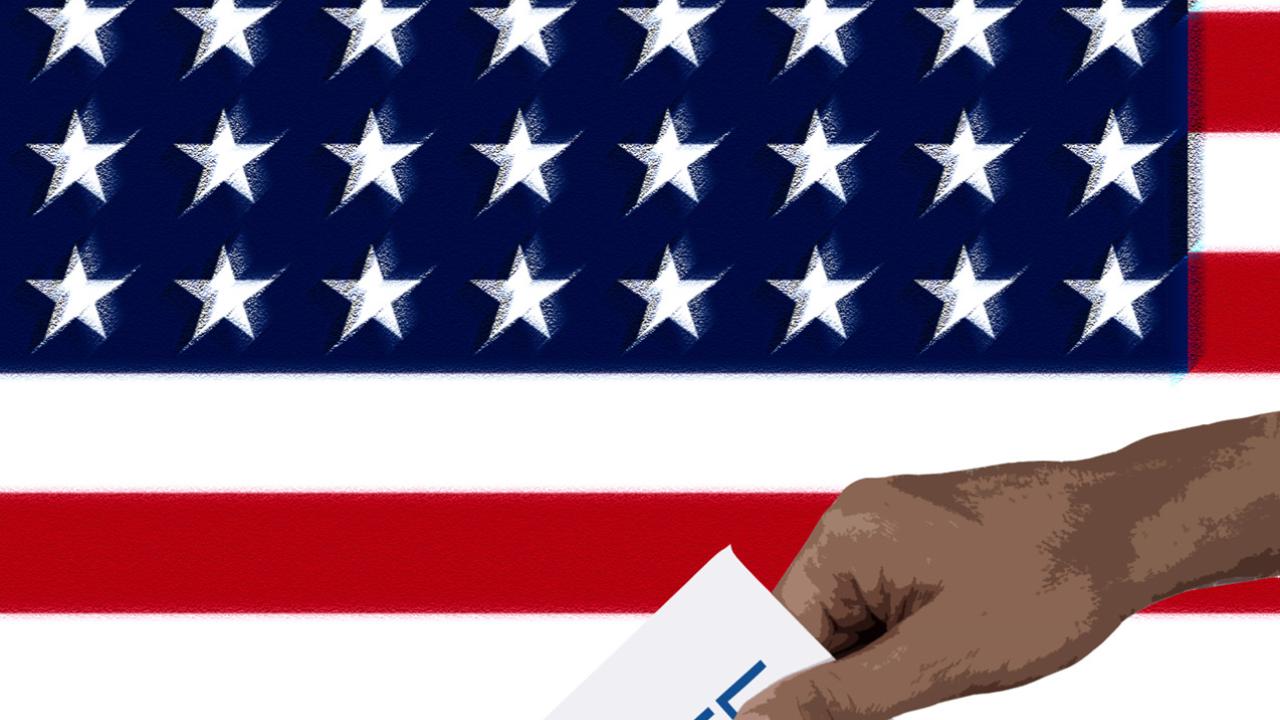
Teaching the Election
 A Professor of History at UC Davis, Kathryn Olmsted studies the cultural and political history of the United States since World War I. We interviewed Professor Olmsted to get her take on campaigns during times of crisis, the role of the media, and her best suggestions for government students this fall. This interview originally appeared in "Teaching in 2020" - the fall 2020 issue of our online magazine, The Source.
A Professor of History at UC Davis, Kathryn Olmsted studies the cultural and political history of the United States since World War I. We interviewed Professor Olmsted to get her take on campaigns during times of crisis, the role of the media, and her best suggestions for government students this fall. This interview originally appeared in "Teaching in 2020" - the fall 2020 issue of our online magazine, The Source.
CHSSP: What do you take away from studying presidential elections during times of national crises? Do candidates have unique responsibilities at such times? Do voters?
KO: Every election is important, but this one is especially significant. It’s never good to have an incompetent president, but it’s critical in times of crisis to have an effective and informed executive who chooses talented and knowledgeable people for their team.
CHSSP: Historically, have crises that inhibit voting (1918 flu pandemic, wars) influenced the ways citizens or states discussed voting rights?
KO: The 1918 flu pandemic took place in a much different political environment, of course, but it did help shape the debates about suffrage. At the time, only fifteen states allowed women to vote for members of Congress; full enfranchisement for women who lived in the other states would have to wait until the ratification of the 19th amendment in 1920. In the 1918 election, three states – Michigan, Oklahoma, and South Dakota – were considering initiatives to give women the right to vote. The flu pandemic made that fight a lot harder for women to win. Because of social distancing and bans on large gatherings, suffragists in many areas could not hold rallies or parades to put their cause before the male voters. Still, all three states approved the initiatives and gave women the right to vote, and in 1919, the House and the Senate passed the 19th amendment, in part because several pro-suffrage Senators had won election in 1918.
There’s also an interesting history behind voting rights and the 1944 election. President Franklin Roosevelt wanted to make it easier for U.S. military personnel to vote. The U.S. had 9.2 million servicemen all over the world that year. Roosevelt thought that those personnel should have a federal ballot that evaded some of the state disfranchisement laws. Southern Democrats fought the servicemen’s franchise bill because they worried it would increase voting – specifically, voting by Black Americans. Republicans feared that servicemen would be more likely to support the Democratic commander-in-chief for re-election. Republicans and Southern Democrats formed a coalition to amend the bill and weaken its protections. Congress finally passed a bill, but it was so watered down that most states could and did ignore it. Only about 100,000 servicemen ending up casting the federal ballots. This struggle over voting rights in the midst of a crisis – in this case, a world war – is interesting because it’s an early example of southern Democrats allying with Republicans in opposition to civil rights. There’s a great chapter on servicemen’s voting in Ira Katznelson’s Fear Itself.
CHSSP: How do you think about the impact of the triple crisis - pandemic, social unrest, economic - on the incumbent’s versus the challenger’s chances in November’s election? Are there historical precedents that come to mind for you?
KO: “Triple” is understating it – you left out climate! It’s hard to think of a crisis of this magnitude before. In 1918, there was pandemic and war, but no widespread social unrest or economic crisis. And that was a midterm election year, not a presidential year. In 1864 and 1944, major wars disrupted voting, and in both cases, the incumbent won. In 1968, conflict over the Vietnam War and widespread social unrest led the incumbent, Lyndon Johnson, to decide not to run for re-election. So I regret to say it’s hard to see any historical patterns!
CHSSP: How do you think about the role of the media in a time when campaign rallies and door-to-door canvassing are restricted by the pandemic?
KO: The media are more important now than ever. In the nineteenth century, voters would learn about candidates by going to hear speeches by candidates or their supporters; voters also relied on party identification. With recorded sound and moving images in the early twentieth century, it became possible for voters to see and hear the candidate. Still, even today, many voters get their information from attending in-person rallies or speeches or talking to door-to-door canvassers. During a pandemic, absent these means of information, they’re going to rely on the Internet (and, to a lesser extent, legacy media). It’s critical that social media platforms in particular show some civic responsibility by refusing to post false information designed to skew the election results.
CHSSP: If you were teaching 12th grade U.S. government this year, what would you want students to pay attention to during the lead-up to the November election? What would you want students to pay attention to after inauguration?
KO: In the lead-up to the election, I’d tell them to watch carefully for several things:
- Truth and falsity of information. What kind of rumors are circulating? How can students check to see if they are true? I would recommend politifact.com, factcheck.org, and snopes.com.
- Who can vote? What are some of the restrictions on voting? How will the pandemic affect voting and the outcome of the election? If a state makes it hard to vote absentee, will Republicans or Democrats suffer more? I’d tell them to look out for restrictions on voting, both explicit and implicit—not just one side rendering certain kinds of voting difficult or illegal, but spreading misinformation about times and places of voting. I would recommend the Brennan Center for Justice and Ari Berman’s Give Us the Ballot.
- If the election is not a blow-out, there could be many potential problems in the immediate aftermath of voting. What will happen if one or the other candidate charges fraud? Is it possible the result will be contested? Is it possible that we will need to wait weeks for the outcome because of all the absentee votes to be counted? What will happen if, as in 2016 and 2000, the candidate with the most popular votes loses the electoral vote? Will there be pressure to reform the Electoral College? Is it even possible to reform the Electoral College, or would it require voters with disproportionate influence to give up their power?
- I would encourage them to think historically about the ways that the right to vote has waxed and waned over time. For example, millions of Black Americans lost the right to vote during the progressive era, just as millions of white women (and Black women outside the south) won it. Alexander Keyssar’s The Right to Vote and Michael Perman’s Struggle for Mastery are good books for this history. More recently, by referendum, Florida voters tried to re-enfranchise a whole class of people, only to be stymied by their elected officials. I would also encourage them to think about the structural ways that the United States limits the effects of democracy (primarily through the Senate and the Electoral College). A good primer on this issue is Sanford Levinson’s Our Undemocratic Constitution.
Finally, after the inauguration, I would encourage them to think about the manifold challenges facing the president. What can/should he do about the pandemic? The economic crisis? The antiracism protests? And how could he be blocked/enabled by a minority in the Senate or by the federal bench?
